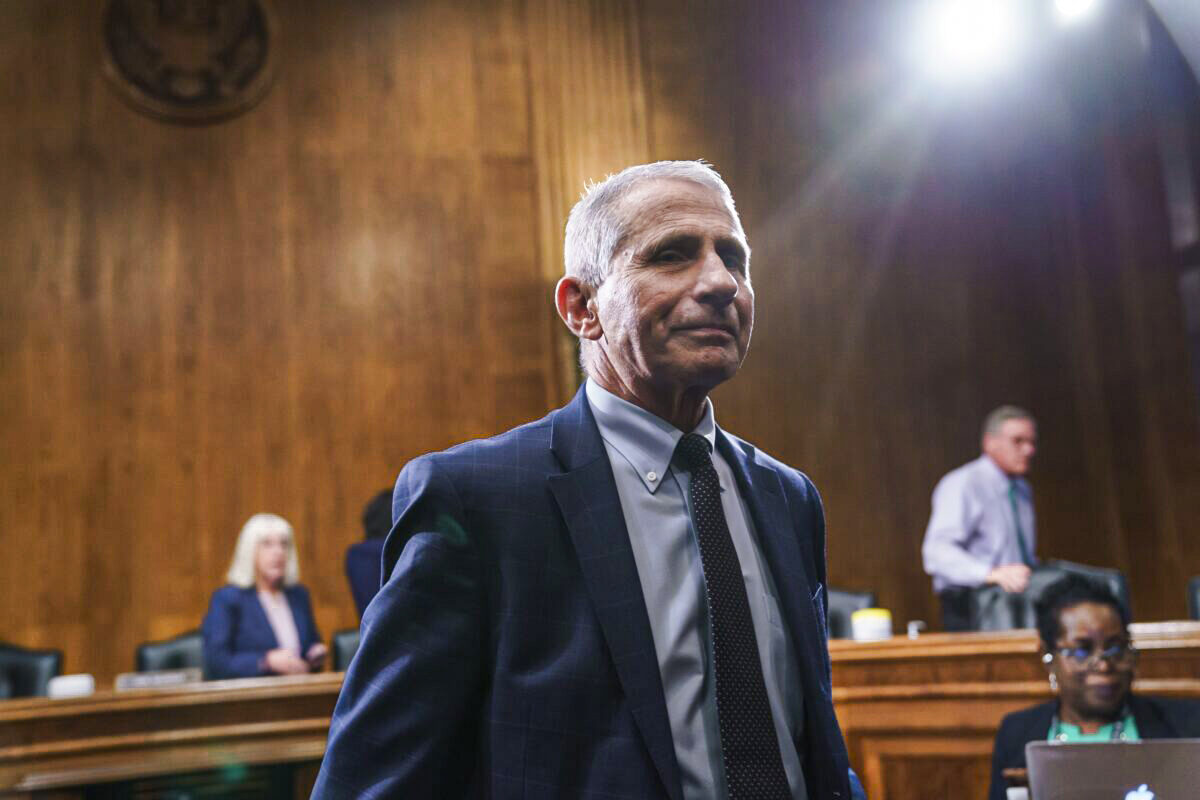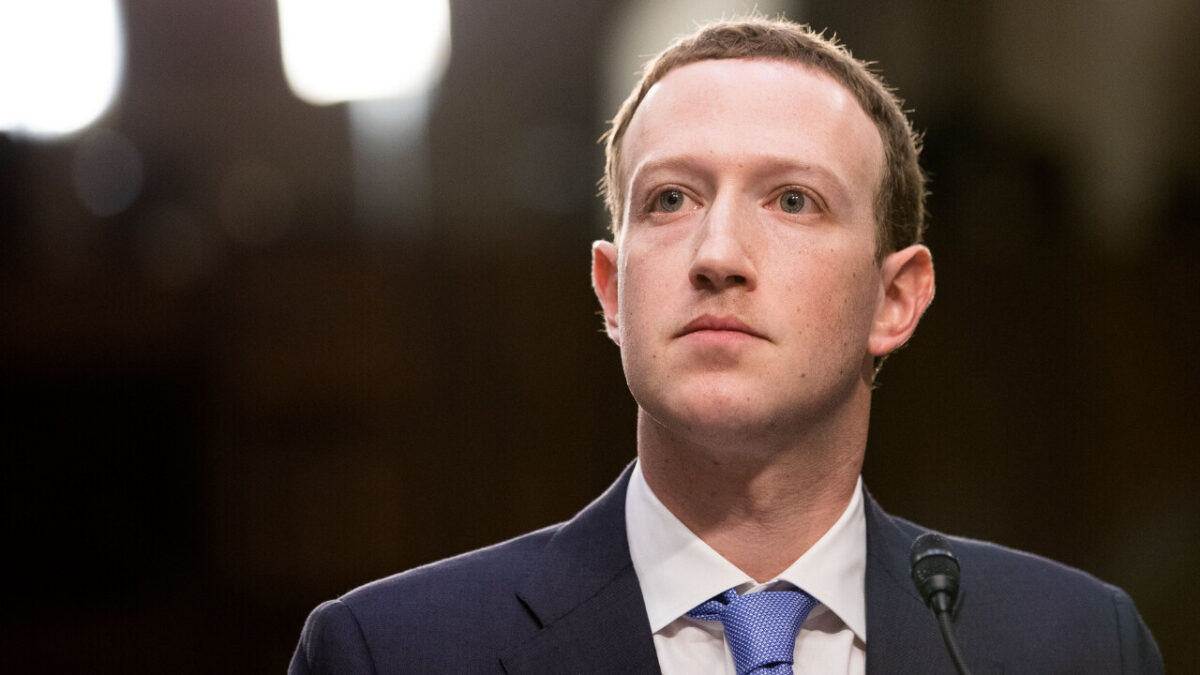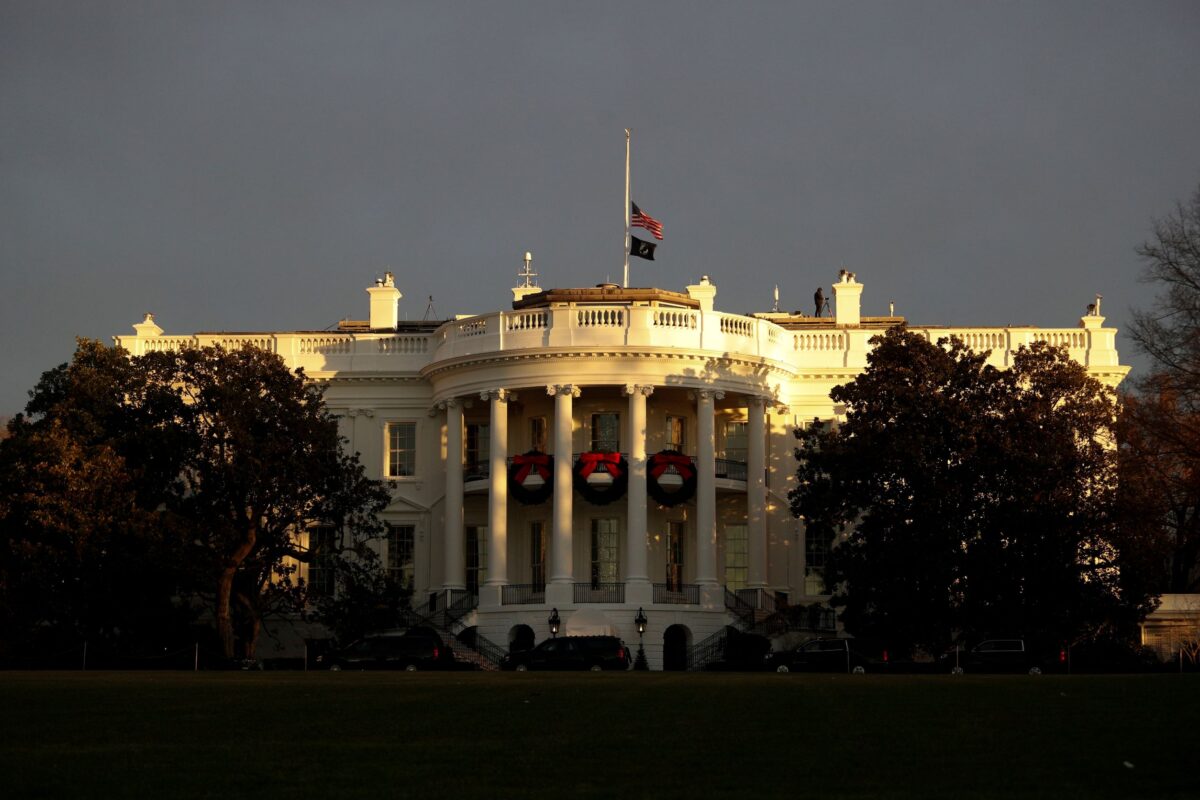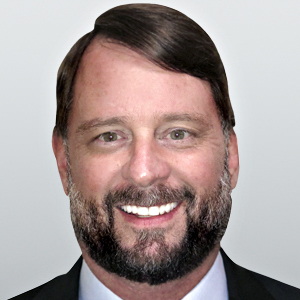Commentary
A previously unseen Oct. 2020 email from Dr. Francis Collins, the outgoing head of the National Institutes of Health (NIH), to his colleague Dr. Anthony Fauci is raising concerns about government-sponsored suppression of free speech—a direct violation of the 1st Amendment.
The email, which appears in a footnote of a Dec. 17 year-end staff report from House Democrats, shows the behind-the-scenes efforts from Collins and Fauci, who were pushing a fresh round of lockdowns, to discredit the Great Barrington Declaration and disparage its authors.
The Great Barrington Declaration was an Oct. 2020 letter that ran counter to the efforts of Fauci and Collins by declaring a unified opposition to broad-based lockdowns, and choosing instead to focus on the protection of vulnerable groups.
That declaration has been signed by many notable medical and epidemiological experts, including Harvard University epidemiologist Dr. Martin Kulldorff, University of Oxford epidemiologist Dr. Sunetra Gupta, Stanford Medical School epidemiologist Dr. Jay Bhattacharya, and Nobel Prize laureate Dr. Michael Levitt.

In the email, Collins told Fauci that “this proposal from the three fringe epidemiologists … seems to be getting a lot of attention,” adding that “there needs to be a quick and devastating published takedown of its premises. I don’t see anything like that online yet – is it underway?”
Collins’s directive to silence American scientists serves as a chilling reminder of the extent and intensity with which First Amendment rights have been undermined in the pandemic era.
Fauci appears to have been in full agreement with Collins’s proposal to take down the authors and their declaration, sending a one-line reply, “I am pasting in below a piece from the Wired that debunks this theory.” The article was essentially an op-ed castigating the declaration but lacking in any fundamental scientific rebuttal.
Fauci’s chief of staff Greg Folkers gave Fauci additional political op-eds from various sources that relayed the same anti-Great Barrington Declaration talking points, but again lacked any scientific basis or fact.
Within a day of Collins’s email, Google started to censor search results for “Great Barrington Declaration.”
The newly disclosed emails also include an email from Fauci’s colleague on Trump’s coronavirus task force, Deborah Birx.
Before the Great Barrington Declaration was made, Birx privately acknowledged to Vice President Mike Pence’s chief of staff Mark Short that the United States would “never look as good as even Sweden due to our co-morbidities.”
Sweden, which famously didn’t adopt lockdown measures, masks, or school closures, has fared better than most other countries that adopted strict measures. Birx was publicly promoting lockdowns that have greatly increased obesity, while privately lamenting the American public’s poor health.
The presence of private views that contradict public pronouncements underlines the inherent dangers of the government promotion of a particular theory as the only permissible opinion. The same divide between public and private views was also evident in a Fauci email in which he privately acknowledged that masks don’t work, since the virus passes easily due to its small size.
This divide between public and private views is highlighted more starkly by the efforts of a group of Fauci-funded scientists to suppress any discussion of the lab leak theory.
The effort by governmental officials to shape the public natural origin narrative while censoring the lab leak theory can be traced to a secret teleconference on Feb. 1, 2020, during which the two main presenters made clear to the teleconference group that they believed it was highly likely that COVID-19 originated from a Wuhan lab.
Kristian Andersen, a Fauci-funded scientist from Scripps Research, told Fauci’s group that he was “60 to 70 percent” sure the virus came from a laboratory. Edward Holmes, a scientist who worked for and with the head of the Chinese Center for Disease Control and Prevention from 2014 to 2020, told the teleconference group that he was “80 percent sure the virus came out of a lab.”
These same presenters were simultaneously completing an article, later known as Proximal Origin, which publicly promoted the Natural Origin theory and dismissed any lab leak theories. The article would prove to be highly influential and has been extensively used by Fauci and the corporate media in their promotion of the natural origins narrative.
Emails sent by members following the teleconference and into the next day made repeated references to the possibility of a pending meeting with World Health Organization Director-General Tedros Adhanom Ghebreyesus. Collins, who emailed Fauci and British pharmaceutical trust director Jeremy Farrar, told them that “I can make myself available at any time 24/7 for the call with Tedros.”
On Feb. 2, 2020, Farrar responded by telling Collins and Fauci that Tedros needs “to decide today.” Farrar included a link to an article that had just been published by ZeroHedge on the possibility that the coronavirus came out of a lab in Wuhan, China.
The contents of the discussion with Tedros aren’t known, but on Feb. 3, 2020, Tedros issued his “Report of the Director-General,” which included a call to “combat the spread of rumours & misinformation.”
While presenting his report, Tedros announced that “[w]e have worked with Google to make sure people searching for information about coronavirus see WHO information at the top of their search results. Social media platforms including Twitter, Facebook, Tencent, and TikTok have also taken steps to limit the spread of misinformation.”
On the same day that Tedros made his speech, and just one day after Farrar’s message with the linked ZeroHedge article, ZeroHedge was banned from Twitter. The ban on ZeroHedge would remain in place until June 12, 2020, with Twitter noting only that “it made an error.”
Twitter’s ban of ZeroHedge served as the opening salvo in an ever-increasing level of Big Tech censorship that would follow, culminating in Twitter’s ban of President Donald Trump on Jan. 8.
Trump would formally respond to his ban—along with the larger issue of ongoing First Amendment violations—in a lawsuit brought on July 7 against Twitter, YouTube, Facebook, and Facebook’s CEO Mark Zuckerberg.
Trump’s Twitter lawsuit alleges that Fauci induced Twitter to ban users who claimed that COVID-19 might have originated from a Wuhan lab. His YouTube lawsuit claims that YouTube is censoring uploads about hydroxychloroquine and only allowing videos that promote Fauci’s narrative to dominate the site.
Trump also alleges that Facebook and Zuckerberg colluded with Fauci and other government actors to advance Fauci’s narrative on the pandemic and vaccines while simultaneously suppressing other views.
While government coercion of, and collusion with, private individuals or companies to limit free speech is unconstitutional, it’s extremely difficult to prove. In many instances, a company may appear to adapt its content, editorial, or censorship behavior without any direct evidence of coercion or instruction.
Social media companies also enjoy immunity from liability for content posted to their sites under Section 230 of the U.S. Communications Decency Act.
Social media companies’ entire business model depends on Section 230, leaving them with an inherent interest in preserving the law, including the potential for complying with the wishes of government actors as a means to do so. It’s notable that most social media companies were feverishly working against Trump, who on many occasions called for the abolition of Section 230.
Regarding Trump’s Facebook lawsuit, the allegations against Fauci and Zuckerberg are particularly strong as there is an email trail that came to light pursuant to a June 2021 Freedom of Information Act request.
According to the emails, Zuckerberg emailed Fauci on March 15, 2020, offering to get Fauci’s “message out” and to partner with Fauci on establishing a “Coronavirus Information Hub” on Facebook. Fauci responded to Zuckerberg, saying that the proposal sounded “terrific.”

Fauci also endorsed another of Zuckerberg’s ideas, but the specifics are unknown since that portion of his email is redacted. Fauci put Zuckerberg in touch with his own director of communications, saying that she would provide Zuckerberg with a “US Government point of contact.”
A few weeks later, in April 2020, Facebook began to monitor and censor COVID-19 related content on its website. Crucially, instead of mandating the removal of objectively false claims, Facebook’s policy mandated the specific removal of claims that didn’t correspond with government recommendations.
In Feb. 2021, the Biden administration conceded that it was engaging directly with social media companies, including Facebook, to remove anything it deemed to be “misinformation.”
A source within the Biden administration told Reuters: “We are talking to them…so they understand the importance of misinformation and disinformation and how they can get rid of it quickly,” adding that the effort was designed to ensure that misinformation “does not start trending on such platforms and become a broader movement.”
Facebook subsequently confirmed that it was offering the White House “any assistance we can provide.” Twitter went even further and publicly confirmed that it was “in regular communication with the White House on a number of critical issues including COVID-19 misinformation.”

By their own admission, social media companies have been coordinating closely with government officials to silence opposing views on COVID-19, thereby undermining constitutionally guaranteed free speech rights.
In a July 2021 op-ed in the Wall Street Journal, Trump warned that “One of the gravest threats to our democracy today is a powerful group of Big Tech corporations that have teamed up with government to censor the free speech of the American people.” Trump noted that “tech companies are doing the government’s bidding, colluding to censor unapproved ideas,” in an ongoing attempt at “manipulating and controlling the political debate.”
The coordinated attempt to discredit a group of highly acclaimed scientists by two of the U.S. government’s most senior officials serves as a stark warning on the fragile state of First Amendment protections in our nation.
The efforts by Collins and Fauci to silence any form of scientific dissent is also directly at odds with the underpinnings of the scientific process. Despite ongoing claims to the contrary from administration officials, the science is never settled.
But the actions undertaken by Fauci and Collins appear to be even more disturbing as it’s becoming increasingly apparent that their repeated attempts to control the public narrative and silence dissenters can be traced back to their involvement in the research conducted at the Wuhan Institute of Virology.





